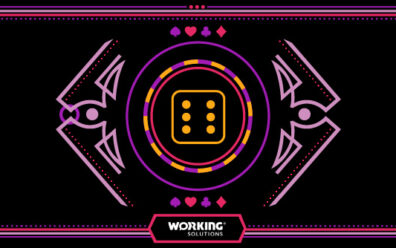Customer Experience7 Minute Read
Revolutionizing Customer Experience: Addressing the 57% Decline in Consumer Satisfaction
In today’s fast-paced business landscape, customer experience (CX) reigns supreme. Customer satisfaction is the linchpin upon which businesses thrive or falter. Unfortunately, over the past year, we’ve witnessed an alarming decline in consumer satisfaction. According to recent statistics, a mere 4% of consumers believe that their experiences have improved, while a staggering 57% feel they have worsened. In this blog post, we’ll delve into the alarming statistics that reveal the decline in consumer satisfaction, dissect the reasons behind it, and offer strategic insights on how to reverse this trend.

The insights and data presented in this blog post are drawn from the 2023 CCW Market Study, CX Trends, Challenges, and Opportunities, which was sponsored by Working Solutions. Download the full report today and uncover valuable insights, actionable strategies, and a roadmap to revolutionize your customer experience.
The Downward Spiral of Consumer Satisfaction
Recent times have unveiled a disconcerting trend – a significant decline in consumer satisfaction. This decline, as revealed by the data, is not merely a blip on the radar; it’s a seismic shift that demands immediate attention. Only by understanding the root causes can we hope to reverse this trend and set a new course toward elevated customer experiences.
1. Lack of Personalization
Only 13% of consumers feel that brands are delivering highly personalized experiences. In an era where consumers expect tailored interactions, this statistic is disappointingly low. Personalization goes beyond addressing customers by their first name; it means understanding their needs, preferences, and pain points. Customers want to feel like their favorite brands know them intimately.
2. Inefficiency in Interactions
A nearly-as-disappointing 25% of consumers feel that brands are failing to deliver quick, easy, and convenient interactions. In the age of instant gratification, customers don’t have the patience for cumbersome processes. Long wait times, repetitive questions, and difficulty reaching a live agent have become common customer engagement pain points.
3. Stagnation in Agent Skills
Despite the talk about improving the quality of customer service agents, consumers have yet to witness notable improvements on the frontline. The majority do not feel that agents are becoming more adept at communicating warmth, knowledge, or empathy. A friendly and knowledgeable agent can significantly impact customer satisfaction.
4. Restrictive Experiences
Customers also feel that their experiences are becoming more restrictive. They face more difficulty receiving refunds or make-goods, and it’s increasingly challenging to reach a live phone agent. As customers seek flexibility and ease, these restrictions become glaring pain points.
The Consequences of Inaction
The stakes of addressing these issues are significant. Research shows that nine-in-ten consumers are more likely to support brands that offer easy experiences, and nearly as many gravitate toward those that display personalization. Brand values matter too; two-thirds of consumers care about a brand’s public stances on hot-button issues, and 84% consider a brand’s reputation for employee centricity.
Moreover, consumers of all age ranges continue to place more trust in phone calls than any other brand communication option. About 95% still expect access to a live agent for some or most issues. These expectations underscore the importance of addressing communication channels effectively.
Solutions to Revitalize Consumer Satisfaction
Now that we’ve dissected the issues and understood their consequences, let’s explore strategic insights to reverse the trend of declining consumer satisfaction:
1. Personalization is Key
Invest in data-driven personalization. Leverage customer data to tailor interactions, recommend products or services, and address issues proactively. Customers appreciate brands that make them feel valued and understood.
2. Streamline Processes
Reduce customer effort by simplifying interactions. Minimize wait times, automate repetitive tasks, and ensure that customers can easily reach a live agent when needed. An efficient, hassle-free experience is paramount.
3. Train and Empower Agents
Invest in agent training programs that focus on communication skills, product knowledge, and empathy. Empower agents to make decisions that benefit the customer and create a culture of customer-centricity within your organization.
4. Enhance Flexibility
Make it easier for customers to resolve issues. Provide flexible refund and return policies and ensure that reaching a live phone agent is a seamless process. Flexibility and responsiveness build trust and loyalty.
5. Build Trust in Data Security
To personalize outbound texts and emails effectively, brands must first cultivate customer trust in their data and security initiatives. Transparency about data usage and robust security measures are essential.
6. Monitor Online Reputation
Online reviews and social media discussions wield significant influence. Keep a close eye on what customers are saying about your brand online, and actively engage with both positive and negative feedback. Addressing issues publicly shows that you value customer opinions.
The decline in consumer satisfaction is an alarming trend that cannot be ignored. In an age where customer experience reigns supreme, the companies that prioritize and perfect it will be the ones that thrive. The 57% decline in consumer satisfaction is a challenge, but it’s also an opportunity for growth and improvement. By prioritizing personalization, efficiency, agent development, flexibility, trust, and online reputation management, businesses can revolutionize customer experiences and ensure long-term success in an increasingly competitive market.
If you’re ready to take action and explore how on-demand customer service can be a game-changer for your business, speak to one of our CX experts and let’s discuss tailored solutions to address the issues that you’re facing.
The path to revitalizing consumer satisfaction begins with that first step, so why wait?
Let's Connect →
This Might Interest You...
This website uses cookies to personalize and improve your experience. Continue browsing our site if you agree to our Cookie Policy or feel free to Manage Cookies yourself.


